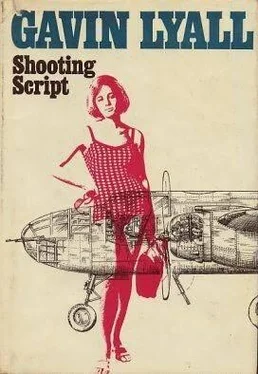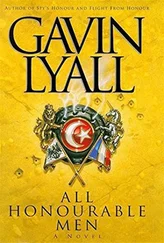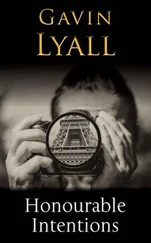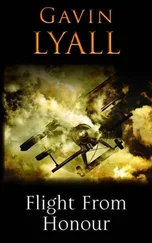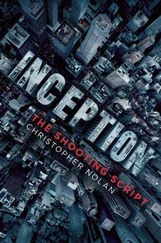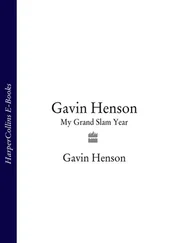Gavin Lyall - Shooting Script
Здесь есть возможность читать онлайн «Gavin Lyall - Shooting Script» весь текст электронной книги совершенно бесплатно (целиком полную версию без сокращений). В некоторых случаях можно слушать аудио, скачать через торрент в формате fb2 и присутствует краткое содержание. Жанр: Триллер, на английском языке. Описание произведения, (предисловие) а так же отзывы посетителей доступны на портале библиотеки ЛибКат.
- Название:Shooting Script
- Автор:
- Жанр:
- Год:неизвестен
- ISBN:нет данных
- Рейтинг книги:3 / 5. Голосов: 1
-
Избранное:Добавить в избранное
- Отзывы:
-
Ваша оценка:
- 60
- 1
- 2
- 3
- 4
- 5
Shooting Script: краткое содержание, описание и аннотация
Предлагаем к чтению аннотацию, описание, краткое содержание или предисловие (зависит от того, что написал сам автор книги «Shooting Script»). Если вы не нашли необходимую информацию о книге — напишите в комментариях, мы постараемся отыскать её.
Shooting Script — читать онлайн бесплатно полную книгу (весь текст) целиком
Ниже представлен текст книги, разбитый по страницам. Система сохранения места последней прочитанной страницы, позволяет с удобством читать онлайн бесплатно книгу «Shooting Script», без необходимости каждый раз заново искать на чём Вы остановились. Поставьте закладку, и сможете в любой момент перейти на страницу, на которой закончили чтение.
Интервал:
Закладка:
But Diego? I couldn't see it.
I finished my beer and Whitmore and Luiz went through their routine and a fresh bottle arrived in my hands. The last light faded from the sky – Jamaican dawns and sunsets are fast, tropical affairs. A couple of lizards came out on the edge of the patio and took up what would be their regular sentry positions and froze there, waiting for a careless night insect.
'How's the film coming?' I asked conversationally. 'Rewritten any good scripts recently?'
Luiz smiled; Whitmore bent an eyebrow at me. 'Fella, the only script matters is the shooting script, the one you actually shoot from. And even that don't matter compared to the picture itself. You can't go handing out copies of the script and say, "We maybe made a lousy picture, but you'll like the script." '
J.B. said: 'We're three days behind schedule: that's nearly fifteen thousand dollars on the budget.'
Whitmore waved a bottle. 'So you're always behind on location shooting. You tell me a location picture that's been brought in on time. Hell' – he turned to Luiz – 'remember down in Durango?'
Luiz chuckled and started to tell the story – about a film they'd made down in Mexico, five years before, where Whitmore hadn't been the producer. And the producer had sent in a popular singer to play the young cowboy part. After a couple of weeks, it turned out that the singer didn't know which side of a horse was up and which end of a gun was front.
Whitmore stopped the whole production dead for four days- with the producer and everybody back to the New York bankers having a coronary every hour on the hour – while he taught the boy to ride and how to pull a gun. At the end of it all, the singer had a broken guitar finger and the critics had hailed him as the man who'd acted rings around old One-Expression. And the film made a vast profit.
Diego laughed politely at the end, but I wasn't sure he saw the point. I wasn't sure I saw it myself, unless Whitmore was offering to him a short coarse in riding and twirling Colts in parallel with my flying lessons.
Soon after that, Diego remembered he had an eleven o'clock date in Kingston and did I want a ride back in his E-type? I didn't, of course, but it seemed the only way I'd stand even a chance of getting home that night, so I went with him.
As we blasted up into the hills out of Port Maria, he said: 'The new aeroplane, Señor- it is most exciting, no?'
'I hope not.'
He grinned. 'Ah, I forgot: you do not approve of risks. But for me, an aeroplane that was once an aeroplane of war – it has, one should say, areality.'
Not to me, it didn't. I didn't know much about Mitchells and even less about this particular one, but if it was like anywarplane I'd met before it would be a lot more temperamental and liable to bust than any civilian aeroplane. A military plane is a racehorse: you spend most of your time working on it, getting it ready for Race Day. But if an airliner isn't plodding around like a carthorse it just isn't earning its keep.
'It'll be different from the Dove,' I said. 'And the experience won't be much use; you'll be flying planes that handle more like the Dove – unless your company goes crazy.'
. 'Perhaps. But to me, it is a challenge. To say – I flewthis aeroplane.'
'It isn't likely to become all that famous. Just a few minutes in a film, that's all.'
'Truly, you are not romantic, Señor.'He grabbed the gear-lever and we went around a dark mountain corner on a prayer and very nearly a wing.
I said, when I had the breath: 'If that's romanticism, I'll take walking.'
He sounded suddenly contrite. 'You are right, of course One must live to fly this aeroplane.' And he lifted his foot.
It was a nice thought, if a rather surprising one. I just hoped he wasn't storing up his 'romanticism' for when we got the Mitchell. But for the moment, just doing the rest of the journey less than twice as fast as I'd have liked was enough for me.
FOURTEEN
J.B.rang ME ATthe Myrtle Bank two evenings later: the Mitchell had reached Barranquilla, so would I stay sober enough to catch a West Indian flight the next morning to connect with a Pan Am flight in San Juan to connect with… Barranquilla isn't a main-line station. I told her to forget it, then rang a friend and bought two very unofficial seats on a Venezuelan cargo plane that was going out to Maracaibo in the morning. From there to Barranquilla is just 200 miles across the frontier.
We ended up hiring a small plane for the last leg, but we reached Barranquilla at four in the afternoon, about twelve hours ahead of her schedule. And there, waiting for us outside the end hangar, was the Mitchell.
Nowadays military aeroplanes have the same sleek good looks as civil aircraft; it wasn't always so, and the Mitchell came from that time. She was thin, box-sided, square-cut, with a long sneering transparent nose, high cranked wings, huge engines and propellers, fat over-sized main wheels like big boots. Just sitting there, she had the hunched, cluttered look of an old soldier loaded with all his equipment.
But this one was a very old soldier indeed.
J.B. was staring with an expression of sick disbelief. After a while she said quietly: 'Jesus Christ.'
'Right – now name me the co-pilot.' Then I shook my head. 'If she really flew in from Buenaventura, she must work better than she looks.'
I was trying to persuade myself. The transparent nose had gone smoky and crackled with tiny veins, like the nose of a hardened boozer; the bare aluminium parts, even the props, were covered with the gritty white lichens of oxidisation; the painted parts – some idiot had painted the engines black to hide oil leaks, but also the one colour to over-heat them in this climate – were dulled and flaking. And the hydraulic system must have been leaking like an old shoe because the flaps were drooping half down, the bomb-bay doors half open.
I knew exactly what had happened. She hadn't been in the air for six months, and then somebody who knew a lot about aeroplanes but even more about money, had made her fit for just the 500-mile ride up from Buenaventura. In two ways, I had to take it from here.
I took a deep breath. 'All right. Now you find whoever's in charge. I want a Certificate of Airworthiness, the log-books -there's three of them – and any pilot's notes and engineering manuals he's got. Anddon't pay him a peso until I've checked them and her.'
She looked at me rather doubtfully, then nodded and went off towards the offices built into the side of the hangar. I started a slow clockwise circuit of the Mitchell, kicking the tyres, squinting into the engines – rust on the cylinder head bolts, of course – banging the inspection panels.
Just below the cockpit there was a piece of over-fancy script, mostly washed and faded away by now. After a bit of twisting my head and puzzling, I made it out:Beautiful Dreamer, with a 1940's-style reclining nude to match. So she'd actually seen squadron service in the war, twenty years ago.
Well, whatever had happened, they'd brought her back -and walked away. And now they were Air Force generals or farmers or just your Friendly Home-Town Used-Car Dealer. And probably it would take them a lot of thinking even to remember the name they'd given her.
But think, boys, try and remember. Just what made her that little bit different from the thousands of other Mitchells they built? How did she fly better than the book says, and how worse? What systems never went wrong – and which never wentright?
Just as man to man, boys – what's she like in bed? She's my girl now.
Then I shook my head and reached and slapped the metal below the cockpit – and nearly burned my hand off at the wrist. She'd been sitting in the sun all day. I took a pair of wash-leather flying gloves out of my hip pocket and pulled them on before I tried anything new.
Читать дальшеИнтервал:
Закладка:
Похожие книги на «Shooting Script»
Представляем Вашему вниманию похожие книги на «Shooting Script» списком для выбора. Мы отобрали схожую по названию и смыслу литературу в надежде предоставить читателям больше вариантов отыскать новые, интересные, ещё непрочитанные произведения.
Обсуждение, отзывы о книге «Shooting Script» и просто собственные мнения читателей. Оставьте ваши комментарии, напишите, что Вы думаете о произведении, его смысле или главных героях. Укажите что конкретно понравилось, а что нет, и почему Вы так считаете.
